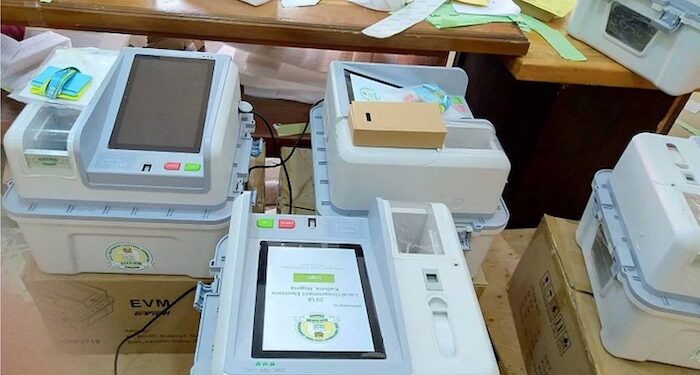Adah Obekpa, a medical doctor from the United States, and his company, Renaissance Network Africa (RNA), have filed a lawsuit against the Independent National Electoral Commission (INEC) and the federal government for allegedly failing to recognise them as the creators of the electronic voting system used in elections.
On March 21, the lawsuit was filed with the Abuja federal high court.
In the lawsuit labelled FHC/ABJ/CS/391/2023, the plaintiffs are seeking an order compelling the defendants to pay N77 billion in compensation and an additional N500 million in damages for allegedly stealing their invention without crediting them.
In the statement of claim, the first plaintiff (Obekpa) asserts that “he and his team, which includes the second plaintiff, devised an innovative and revolutionary I-voting system that will guarantee free, fair, and credible elections for sustainable democracy in Nigeria as early as 2010”.
He asserted that the “I-voting system proposal was conceived by him to ensure that valid votes cast in any election in Nigeria are not altered or eliminated from the final tally, while invalid votes are also not permitted or counted in the final tally by unscrupulous elements that aid desperate politicians in rigging elections.”
Obekpa stated that he travelled to Nigeria to meet with former INEC chairman Atahiru Jega, where they discussed his plan.
The plaintiffs assert that they utilised both financial and human resources in 2010 to create and design the I-voting plan for INEC.
According to them, the BVAS and IREV designations were given to their proposal.
“The plaintiffs must also demonstrate at trial that the INEC Result Viewing Site (IREV) was their content proposition to the first defendant in 2010,” the plaintiffs stated.
“The plaintiffs assert that, as the originators of the I-voting proposal to INEC document, they maintain the unique and assignable legal right to the document.
“The plaintiffs allege that the first defendant suppressed the I-voting suggestion they submitted by failing to contact them in order to claim sole credit for it.”
Thus, they are requesting a declaration from the court that the I-voting plan is identical to the BVAS and IREV.
In addition, they ask the court to order the federal government “to officially recognise and thank the plaintiffs and their team that participated in the preparation and design of the I-voting proposal to the first defendant since 2010.”


